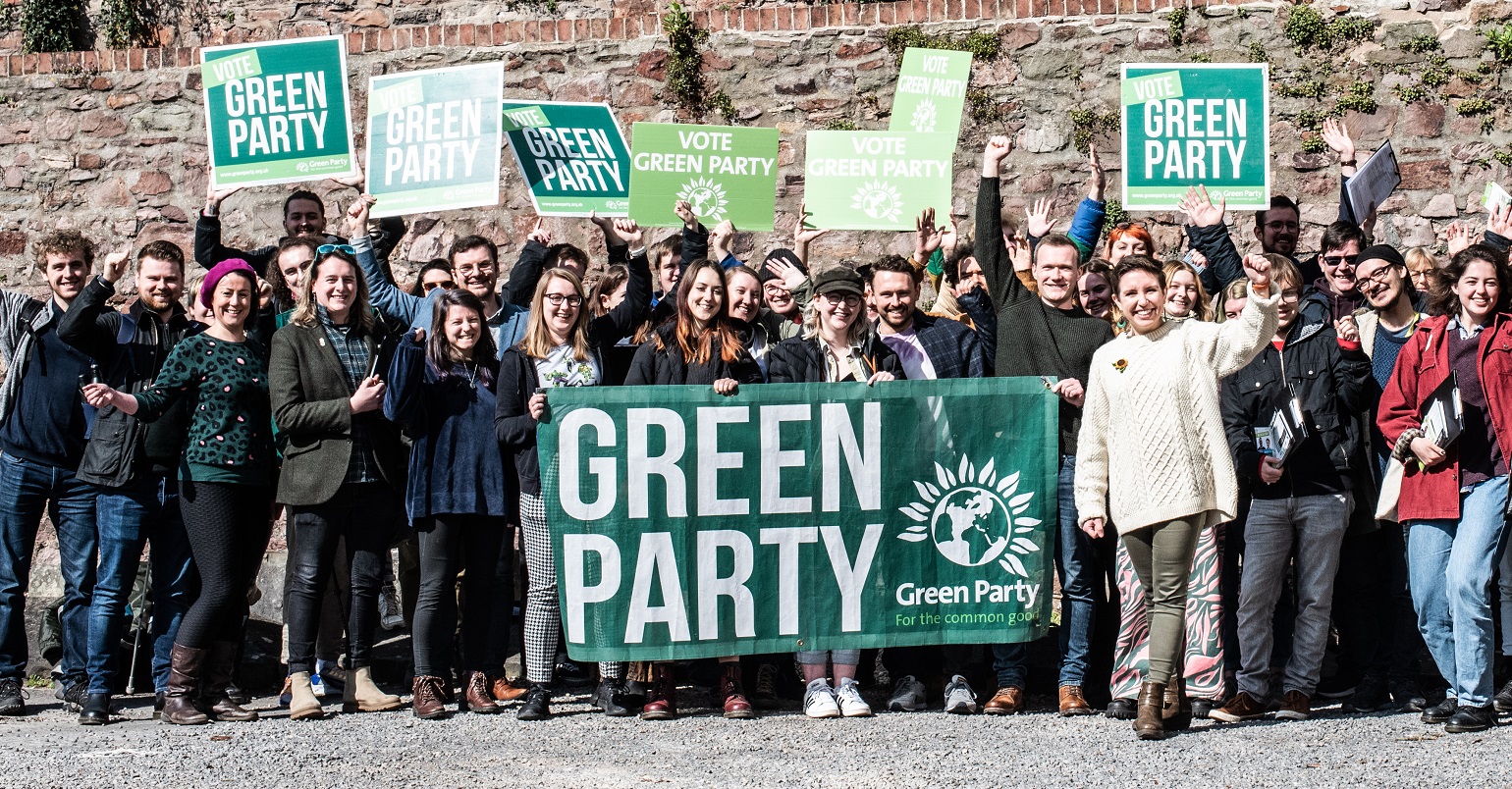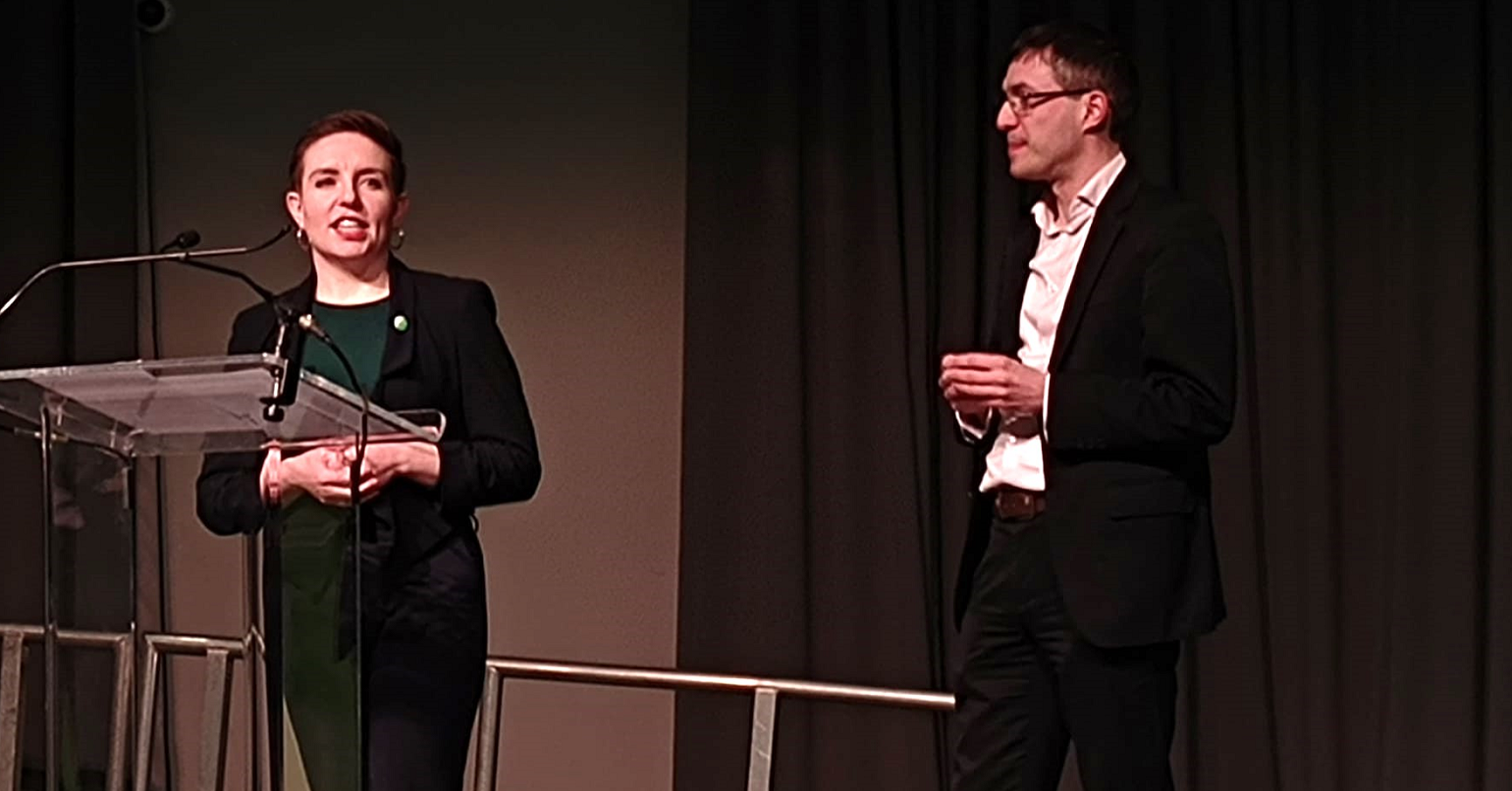The truth about the Green Party’s new defence policy (including NATO)

During the Conference debate on Peace, Security and Defence there was nothing which aroused stronger emotions and more conflicting views than our membership of NATO.
This was the case for the Working Group too. Our membership included some who believed that NATO is generally a force for good; some who thought it would look bad for the Green Party to be speaking out against NATO whilst the war in Ukraine is raging; and some who believe that NATO is an aggressive alliance which tends to act as an arm of United States policy and the Green Party should have nothing to do with it.
So we had to come to a compromise which all could accept. The section starts with ‘The Green Party recognises that NATO has an important role in ensuring the ability of its member states to respond to threats to their security’. This was hard to swallow for some of us.
But then it goes on to demand a number of reforms of NATO and states ‘Other security arrangements may be considered should such reforms become unattainable’.
Those who are concerned that the party has stepped back from outright rejection of NATO may be comforted by the idea that the changes we are demanding of NATO would be unachievable without a radical rethinking of the Alliance.
We are asking for a commitment to ‘No First Use’ of nuclear weapons; a focus on outreach and dialogue, based on democratic values; a commitment to upholding human rights; and a promise to undertake no out of area operations or military exercises. To these we added an amendment which ties NATO to abiding by International Treaties and UN Resolutions and to entering into dialogue with neighbouring states about their security concerns prior to NATO expansion to new member states.
This last point was especially controversial, but Co-Convenor Mike Shipley, explained that we were not suggesting any third country should have a veto, but that it would be advantageous to enter into discussion about their legitimate concerns. If there had been meaningful discussions along these lines between US/NATO and Russia in recent years, might we be in a different situation today?
Whilst the whole world knows about NATO, the Organisation for Security and Co-operation in Europe (OSCE) has had very little publicity. It has 57 member states, including Russia and all the former Soviet republics, plus the United States and Canada. Its role is to build cooperation and trust between states on issues such as arms control, conflict prevention, environmental management, prevention of trafficking, migration, human rights, media freedom and gender equality.
For such a huge and important remit the OSCE has an annual budget of around $140 million. That is equivalent to a little more than the cost of one F35 fighter jet or one hour of US military spending.
The Green Party would seek to enhance the work of the OSCE and encourage all other member states to do the same. Its values and activities fit perfectly with the concept of Human Security which forms part of our new policy. This is about providing security through sustainable development, not arms and through cooperation rather than confrontation. Human Security looks at all the threats we face – the impact of climate change and biodiversity loss; conflict and human rights violations, inequality and lack of access to basic needs; authoritarianism and threats to democracy.
We had great advice on these issues from Professor Paul Rogers of Bradford University and other colleagues of his in the widely respected academic group ‘Rethinking Security’.
On the United Nations, our policy calls for permanent seats on the Security Council to be abolished, along with the veto. We recommend that all nations should be allowed to take a seat in turn, but recognising how difficult it will be to dislodge the Permanent Five, we support the right of the General Assembly to override the veto by a two thirds majority. This idea was approved in the General Assembly last year after a proposal from Lichtenstein.
The Green Party has always been staunchly opposed to UK ownership of nuclear weapons. That has not changed, but political developments in recent years have allowed us to frame it in a new way. Our policy is to join the Treaty on the Prohibition of Nuclear Weapons (TPNW) and to immediately begin the process of dismantling our warheads and missiles, cancel the Trident programme and remove any foreign nuclear weapons from the UK.
An amendment which called for us to try to use our nuclear arsenal as a bargaining chip in setting up a new treaty to reduce nuclear arsenals worldwide, was rejected as both unlikely to succeed and as crossing a line in that it would require us to keep our nuclear weapons in the medium term, something which is simply unacceptable to most Greens.
Over 90 states have already signed the TPNW and 68 have completed ratification. We would be joining the majority world in rejecting nuclear weapons and as Natalie Bennett so eloquently said at Conference, we would be providing moral leadership towards a nuclear free future.
Linda Walker is co-convener of the Green Party’s Peace, Security and Defence Policy Working Group
PS. We hope you enjoyed this article. Bright Green has got big plans for the future to publish many more articles like this. You can help make that happen. Please donate to Bright Green now donate to Bright Green now.
Image credit: Matthew Philip Long – Creative Commons




As a pacifist and CND member, I belong to the school of thought which believes that NATO is an agressive alliance and a defensive one only the Orwellian sense of claiming to be opposite of what it really is. Too little reference has been made to the relentless drive by NATO to absorb not just Eastern European countries formerly in the Soviet sphere of influence, but also the majority of the former 15 republics comprising the Soviet Union up to its collapse just 32 years ago. This constitutes a major shift in the geopolitical balance of power and it is no surprise that Russia has regarded the courting by NATO and the EU of Ukraine as an existential threat – essentially the last straw.
From a peacekeeping point of view, it makes no sense to send lethal aid to Ukraine, as this will only serve (and has already served) merely to prolong the bitter proxy war and lead to utter misery for civilian populations. There are cynical political, military and commerical forces on both sides who are self-interested in promoting the bloody conflict and profitting from it in one way or another.
In light of the above, I was disappointed to learn of the national party’s policy revision on NATO. I hope that this will be only a temporary aberration and feel it may be partly explained the influx of new members lacking a ‘deep’ Green and internationalist outlook.
I’m very grateful to Linda for taking the time to write this article and explain the Working Group’s thinking on this subject. I think it remains clear that a vote for the Greens is far and away the best way to challenge the prevailing militaristic mindset, and to move us towards a more peaceful world. Give peace a chance! As for giving NATO a chance – well, I’m not so sure about that but I respect the thought which has gone into this policy.
Disappointing to see the Green Party supporting NATO, but I understand why some people feel we should. I hope the resolution stated that we do NOT support NATO’s push for an increase in military spending to 3%GDP by all members. We should be supporting a decrease in military expenditure. Education, health, social welfare, green investments are all more important than military expenditure
I agree. Peacemaking must always be the focus of the Green Party – if the world spent as much time and resources on peacemaking as it does on war we’d have no conflict – it is the duty of the Green Party and all members to push for peace in the face of warmongers. All sane people wish to live in peace and what a wonderful world we’d live in without the threat of war upon us. NATO is not the answer – many superior thinkers regard it as a dinosaur that needs to be consigned to the past; there are far better mechanisms for peace than lining the bank accounts of warmongers who keep us in a perpetual state of fear to justify their industrial military complex. We need to progress.
I endorse all Linda Walker’s comments about peace, security and defence. Why has the Green Party daily bulletin not mentioned this subject after the overwhelming success of the motion passed at conference at the weekend.